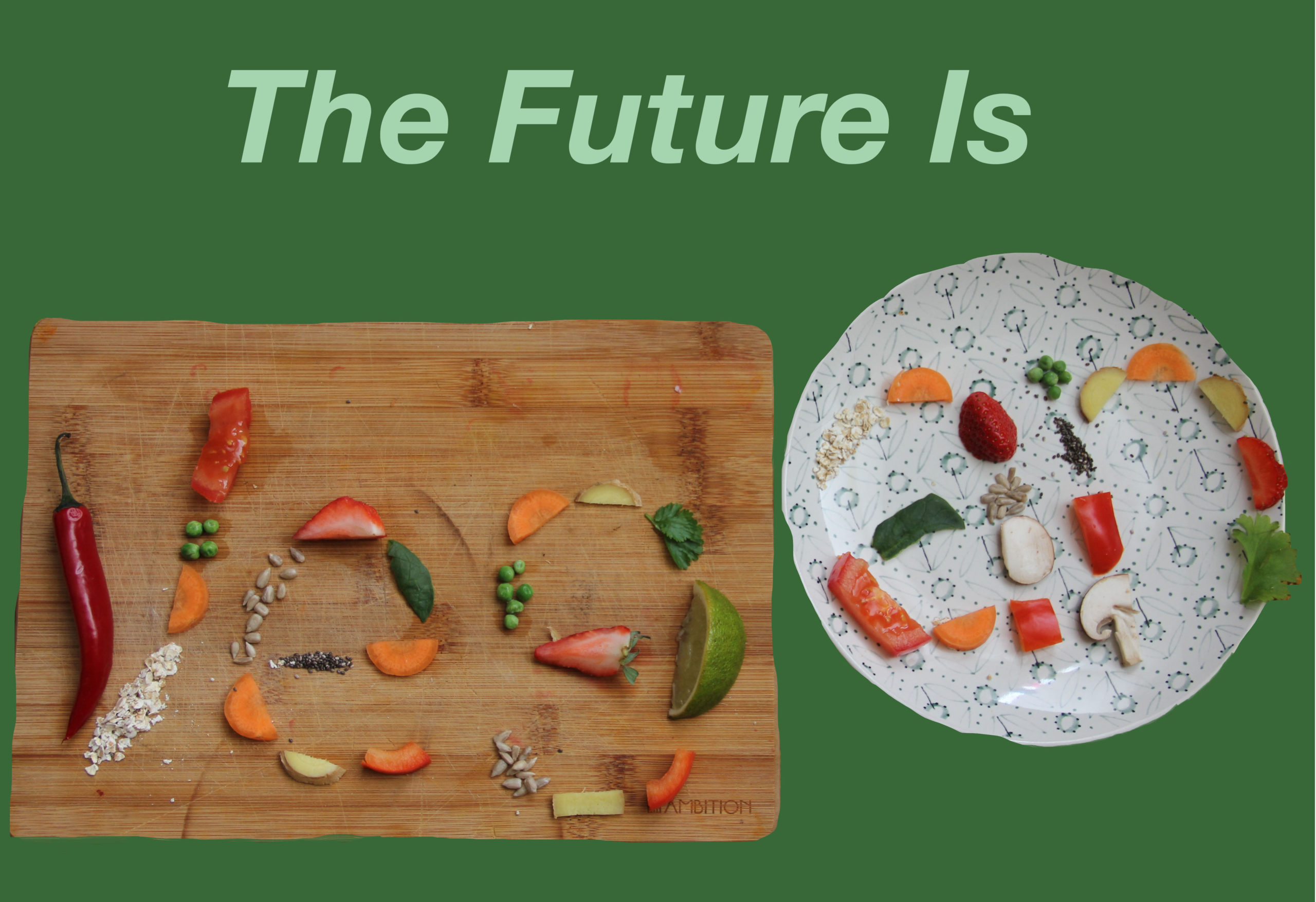[Written By: Lynsay Holmes]
[Art: Aike Jansen]
Veganism. We’ve all heard of it, you’ve probably got a friend or a neighbour who identifies themselves as this “strange” creature. But in this article I aim to debunk the myths surrounding veganism; that it’s an “extremist ideology” or an expensive and elitist lifestyle for health conscious, 40-year-old yoga mums. Instead, I will reiterate its real roots and true core as a socio-political movement. Lesson one: Veganism is not about food, it’s about politics. The aim of the vegan movement is to make a permanent, ethical change that filters into all facets of our daily lives. It is everything you consume: food, clothes, beauty products, furniture; the thing we all consume most is food and thus why the image of veganism is food centred.
The meat eater diet is a social construct; we are not “meant” to eat meat, we choose to eat meat. It is not “natural”, it is learnt. Early humans had diets that were very much like that of apes- a plant based diet. Our hands are perfectly designed to pluck and dig for small fruits and vegetables; you can’t tear flesh by hand. It was during the hunter gatherer age we were prompted to eat other animals due to food scarcity, but our modern day reality is anything but; you don’t need to go down to the Clyde to get a fish. Unconsciously continuing to consume animal based products has proliferated dominant institutions who have no regard for the planet or its inhabitants -only money. By not participating, veganism destabilises established consumerist culture- big businesses don’t like that. To the capitalist, the green of money is worth more than the green of grass.
Debunk number two: vegans are challenging the necessity of meat and other animal products, not “sacrificing” ourselves and being stripped of food freedom. In fact, I have tried more cuisines since becoming a vegan. My tendency to stick to the same old, boring chicken and not opting for something exciting like sweet and sour aubergines or a tofu and potato goulash was actually an unconscious limiting. The poorest cultures are plant based, which is a comment on western greed. A meat and dairy diet requires three times the amount of land needed to sustain a plant-based diet. With worldwide food and water shortages due to innumerable environmental and socio-economic problems, veganism boycotts an inefficient food system, which extremely affects the world’s poorest populations.
As a former vegetarian, I am truly empathetic with the mental obstacle that is cheese. However, vegetarianism should not be viewed as an end goal; It is the transitional period to becoming a vegan. Milk matters and fromage has a footprint: Dairy can have more impact than some kinds of meat. The Environmental Working Group “Meat Eaters Guide”, showed that one kilo of cheese produces an equivalent of 13.5 kilos of carbon dioxide. Similarly, turkey produces 10.9 kilos and chicken 6.9 – making cheese more polluting than turkey and almost doubly chicken. Lentils produce 0.9 kilos of CO2 and protein robust beans and tofu produce 2 kilos.
Additionally, the spotlight has always been shone on Carbon Dioxide, but there is a wide range of gases that have even more potential to severely damage the ozone layer; most notably Methane. According to Livestock’s Long Shadow, a report published by The Food and Agriculture Organization of the United Nations, the livestock sector is responsible for 37 percent of all human-induced methane; the gas which has 23 times the Global Warming Potential (GWP) of CO2. The sector also generates 65 percent of human-related nitrous oxide, which has 296 times the GWP of CO2. Most of this comes from animal manure.
Obvious animal cruelty is a strong enough reason to go vegan in itself: Every year in the UK approximately 2.6 million cattle, 10 million pigs, 14.5 million sheep and lambs, 80 million fish and 950 million birds are slaughtered for human consumption.
How many times do you eat a day? Every single bite is a statement, whether you’re conscious of it or not. Power operates at the level of daily routine: in recognising that your lifestyle has the potential to be a political vehicle and thus choosing the ethical alternative, you have a chance to take back control. Eating is speaking: Pick up a butternut squash wrap- Say NO. Drink soya milk– say NO. Veganism is daily activism: this is your chance to be the change you want to see in our world: eat, drink, wear the change. Go Vegan.
SaveSave

